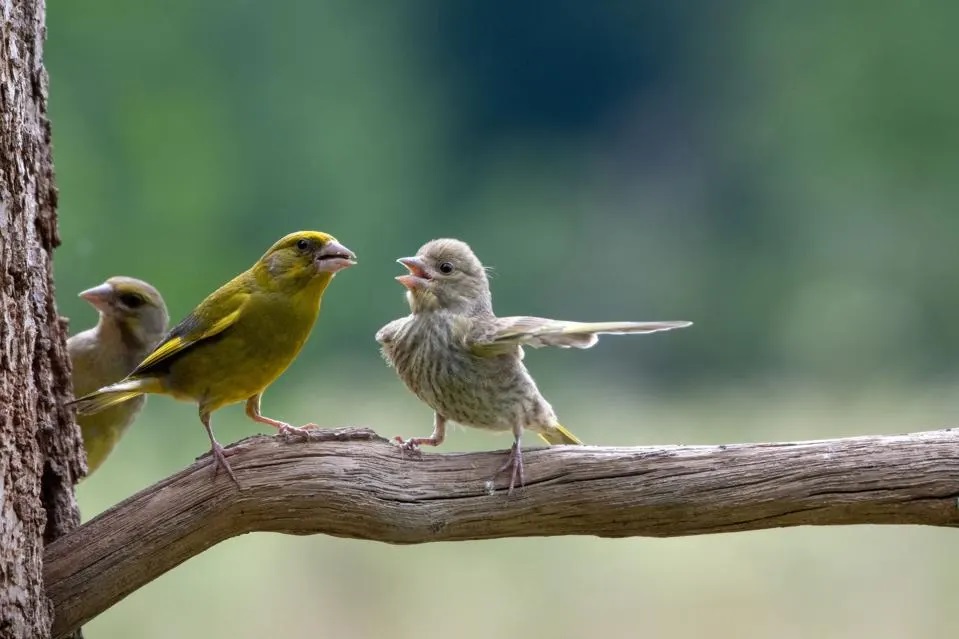
So, here you are. How’d that happen? Did a little bird send you? A Philosophy of Enjoyment? You’re kidding, right? Sounds like an excuse to misbehave (think salacious and audacious), but then, maybe you are depressed or anxious or flummoxed by existence or know someone who is, so you did a Google search looking for answers and stumbled upon a Philosophy of Enjoyment.
What? It happens.
Maybe, if you are receptive to what is presented by a relative far, far removed (meaning, yours truly, there’s no ChatGPT here), you’ll take it to heart, learn from it, laugh a bit and change your philosophy of life completely.
What? It happens.
Think about it: With 1.13 billion websites on the internet in 2023—82% of which are inactive—(source: Forbes Advisor), finding this site is like being hit by lightning.
And we all know how fun that is.
A Philosophy of Enjoyment addresses one problem: How does a person—like you and yours truly, for example, a person with a particular vantage point, with feelings, abilities, limitations and opinions; a person with an economic standing, living in multiple cultures, framed in a body, identifying with a gender or agender—how does such a person transcend, as in, go beyond or rise above a localized low-to-the-ground subjective perspective that’s possibly defective, addictive, depressive, sad, mad, or morose, so as to enjoy being alive and thinking to experience beauty, tranquility, sublimity and jocularity daily?
Moreover, how can a person transcend habituated thinking and what does transcendence have to do with enjoying a good life in a world rife with bedbugs? How does a person subjected to the unwelcome and unpleasant vicissitudes of life learn to see the world as beautiful and enjoyable with gratitude, without needing alcohol, edibles or anything? Is that even possible?
Of course it is. Transformation happens every day at sunrise. A new day, a new you. You decide who you’ll be and what you’ll do.
Cue music (to set the mood for transcendence and transformation):
Ancient Greek philosophers like Aristotle, Epicurus and Epictetus emphasized eudaimonia. That’s an old word without a modern equivalent. Maybe that’s because eudaimonia encourages virtues like prudence and moderation, both of which may be considered old-fashioned bummers.
Eudaimonia is a Greek word commonly translated as happiness or welfare but it literally means the state or condition of good spirit, as in, eu = good and daimonia = spirit.
But the word spirit causes people to think of ghosts and disembodied astral projections when what we’re really talking about is a feeling.
Epicurus (341-270 BCE) set up a school in his garden to study what makes people happy. After years of study he found that happiness requires tranquility, freedom from fear, absence of pain, friendship and connection.
Incidentally, the word paradise comes from a Persian word which means Walled Garden. “The notion of Paradise as a garden predates Islam, Judaism, Christianity and even the Garden of Eden. It stems from the Sumerian period 4000BC in Mesopotamia. Shade and water are two important elements of paradise” (The Beauty and Paradise of Gardens).
“Epicurus advocated living in such a way as to derive the greatest amount of pleasure possible during one’s lifetime, yet doing so moderately in order to avoid the suffering incurred by overindulgence in such pleasure” (Wikipedia).
It’s unfortunate, however, that pleasure is viewed with suspicion because it’s the excuse used for bad behaviour by the likes of sexual predators, traffickers and rude scoff-laws in loud cars who are all about their personal pleasure at the expense of others.
Epicurus wrote, “It is impossible to live a pleasant life without living wisely and well and justly. And it is impossible to live wisely and well and justly without living a pleasant life” (Classical Wisdom).
When a pleasure takes hold, however, if one isn’t careful, one may want more and more. Those who are addicted to a pleasure may no longer be willing participants. Sometimes we all think it would be nice if things were different. We might wish our self to be different. Those without religious affiliation might even wish there was more to life than a scientific explanation.

The philosopher Baruch Spinoza (1632-1677) said that God is nature, and, as you may have heard, psychological studies show, “People who are more connected with nature are happier, feel more vital, and have more meaning in their lives” (see: “How Modern Life Became Disconnected From Nature“, The Greater Good Magazine).
Philosopher Jonathan Rée (born 1948) said that Spinoza advised us to, “look with an attitude of love and reverence on the natural world as a whole and perhaps even yourself as a part of it… insofar as we’re irrational we’re divided, insofar as we’re rational we are united… freedom is not a matter of getting what you like. Freedom is learning to like what is rational to like” (Spinoza’s Ethics).
Happiness is in our nature (Springer Link). We just might not see it. We probably did as kids, but maybe not anymore (see also: Breathe in the air (and enjoy)). Happiness is available no matter who you are or what the situation. It takes a way of thinking that’s optimistic and a heart that is open without needing surgery.
Unless you are very young, you’ve probably realized that by living, time passes, and what’s happening now will become a mental movie which may or may not have occurred as remembered. The band OK Go put it this way: “… You know you can’t keep lettin’ it get you down, And you can’t keep draggin’ that dead weight around. If there ain’t all that much to lug around, Better run like hell when you hit the ground… When the morning comes” (“This Too Shall Pass”, 2010).
This is the end. Look at all angles and both ways too! March on. Think rational and love the world you’re in to make it even better (see also: Knowledge, Wisdom, Insight and Enjoyment).
Enjoy it. It’s for you.
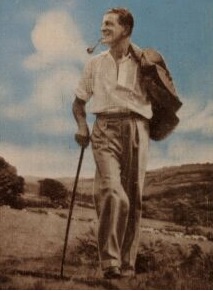
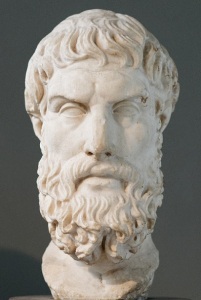




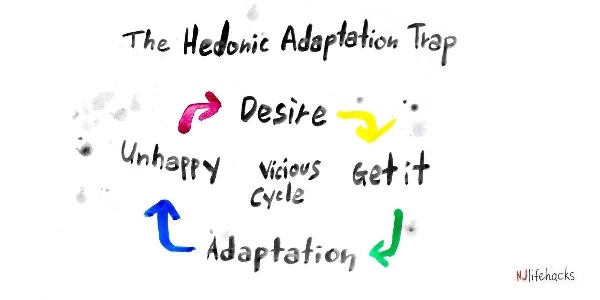
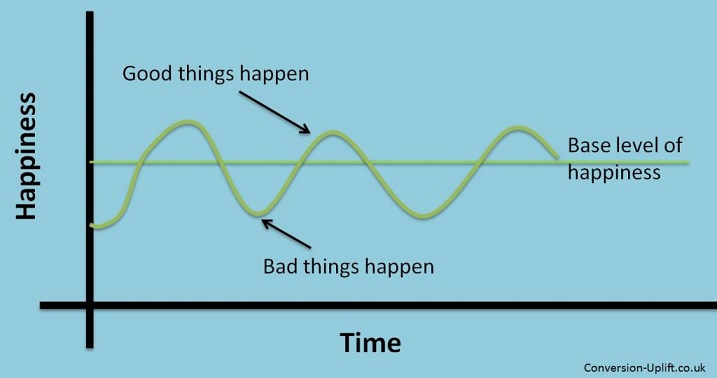









 We know living things are made up of cells and a cell is a “protein-based robot too small to feel or experience anything”
We know living things are made up of cells and a cell is a “protein-based robot too small to feel or experience anything” 






 Happy feelings that make life worth living don’t just hit unbidden. You cultivate them. Love and enjoyment are nurtured with attention, authenticity and self-understanding. You can learn how to love and enjoy. They are capacities. You are the soil prepared for good feelings to grow.
Happy feelings that make life worth living don’t just hit unbidden. You cultivate them. Love and enjoyment are nurtured with attention, authenticity and self-understanding. You can learn how to love and enjoy. They are capacities. You are the soil prepared for good feelings to grow. To capitalize on our craving, love and enjoyment are used in product branding. Advertisers use the words “love” and “enjoy” interchangeably. To say, “I’m loving it!” is another way of saying, “I enjoy!“
To capitalize on our craving, love and enjoyment are used in product branding. Advertisers use the words “love” and “enjoy” interchangeably. To say, “I’m loving it!” is another way of saying, “I enjoy!“





 Our deepest need is to overcome separateness. It’s why we conform. It’s why we cling to cults, clans and nations. It’s why we participate in the herd activities of sports, politics and drug-fuelled electronic dancing.
Our deepest need is to overcome separateness. It’s why we conform. It’s why we cling to cults, clans and nations. It’s why we participate in the herd activities of sports, politics and drug-fuelled electronic dancing. Garry Shandling (1949-2016) – another great comic with heart – said, “All my journey is, is to be authentically who I am – not trying to be somebody else…. The whole world is confused because they’re trying to be somebody else! To be your true self, it takes enormous work… Ego drives the problems so you have to work in an egoless way” (
Garry Shandling (1949-2016) – another great comic with heart – said, “All my journey is, is to be authentically who I am – not trying to be somebody else…. The whole world is confused because they’re trying to be somebody else! To be your true self, it takes enormous work… Ego drives the problems so you have to work in an egoless way” (





 And yet, feeling at one with everything sounds like a fantasy because it feels like there’s a self “in here” (with your name on it!) and a world “out there,” (that’s scary sometimes) but this is a trick we play on ourselves (
And yet, feeling at one with everything sounds like a fantasy because it feels like there’s a self “in here” (with your name on it!) and a world “out there,” (that’s scary sometimes) but this is a trick we play on ourselves (
 Enjoyment is an attitude. It isn’t weather dependent. It’s immaterial because it doesn’t depend on anything. It comes by way of you. You take a rainy day and enjoy it anyway.
Enjoyment is an attitude. It isn’t weather dependent. It’s immaterial because it doesn’t depend on anything. It comes by way of you. You take a rainy day and enjoy it anyway. Enjoyment is strapping on life like you’d strap on a baby bonnet – on a baby! It’s gentle, giving and warm, free and innocent and does no harm. You don’t have to be in a
Enjoyment is strapping on life like you’d strap on a baby bonnet – on a baby! It’s gentle, giving and warm, free and innocent and does no harm. You don’t have to be in a  As Lynn Anderson sang it, “Along with the sunshine, there’s gotta be a little rain sometime” (“
As Lynn Anderson sang it, “Along with the sunshine, there’s gotta be a little rain sometime” (“






 The proof that people don’t understand what they do is in their doing. If they could do better, they would. But they can’t. So they don’t. Those who are cruel have broken from beauty.
The proof that people don’t understand what they do is in their doing. If they could do better, they would. But they can’t. So they don’t. Those who are cruel have broken from beauty. You see a man named Gil greet a woman named Gabrielle. You hear Gabrielle mention Cole Porter and you see Gil smile.
You see a man named Gil greet a woman named Gabrielle. You hear Gabrielle mention Cole Porter and you see Gil smile. You’re up before the sun “working in a coal mine, going down down,” and someone says, “Lord! I am soooo tired. How long can
You’re up before the sun “working in a coal mine, going down down,” and someone says, “Lord! I am soooo tired. How long can  But few people see signs these days and those who do are maligned. We might crave a vision but all we have is TV. It’s not because the signs aren’t there that we don’t see them.
But few people see signs these days and those who do are maligned. We might crave a vision but all we have is TV. It’s not because the signs aren’t there that we don’t see them.


 No sooner do you have this realization when you see a sign. But it isn’t the sign that catches your attention. It’s the sign spinner. Stopped at a streetlight, you watch the sign spinner. Suddenly life doesn’t seem so bad.
No sooner do you have this realization when you see a sign. But it isn’t the sign that catches your attention. It’s the sign spinner. Stopped at a streetlight, you watch the sign spinner. Suddenly life doesn’t seem so bad. What you thought was going to be “one of those days” changes into something beautiful when you open yourself to connection and possibility.
What you thought was going to be “one of those days” changes into something beautiful when you open yourself to connection and possibility. Jump forward: now you’re in a lab cubicle waiting for a nurse to take your blood. You’re listening to the Moody Blues sing “
Jump forward: now you’re in a lab cubicle waiting for a nurse to take your blood. You’re listening to the Moody Blues sing “
 Candlelight represents the sun, spiritual illumination, goodness, joy. Light symbolizes intelligence and darkness is death and destruction. Candles at weddings symbolize unity. On birthday cakes they symbolize the light of life and the old belief that smoke from candles carries wishes and prayers to gods who live in the skies.
Candlelight represents the sun, spiritual illumination, goodness, joy. Light symbolizes intelligence and darkness is death and destruction. Candles at weddings symbolize unity. On birthday cakes they symbolize the light of life and the old belief that smoke from candles carries wishes and prayers to gods who live in the skies. Diarist and Holocaust victim Anne Frank (1929-1945) wrote, “Look at how a single candle can defy and define the darkness.” She knew about darkness and yet, despite her terror, she wrote like a philosopher of enjoyment: “As long as this exists, this sunshine and this cloudless sky, and as long as I can enjoy it, how can I be sad?”
Diarist and Holocaust victim Anne Frank (1929-1945) wrote, “Look at how a single candle can defy and define the darkness.” She knew about darkness and yet, despite her terror, she wrote like a philosopher of enjoyment: “As long as this exists, this sunshine and this cloudless sky, and as long as I can enjoy it, how can I be sad?” Poet Mehmet Murat ildan said, “If your mind is misty, your life will be misty; if your mind is sunny, your life will be sunny! Your life will be the reflection of your mind, of your thoughts! If there is a candle in your mind, your life will not know what utter darkness is!” (
Poet Mehmet Murat ildan said, “If your mind is misty, your life will be misty; if your mind is sunny, your life will be sunny! Your life will be the reflection of your mind, of your thoughts! If there is a candle in your mind, your life will not know what utter darkness is!” ( Ancient Greeks (and not Athenian octogenarians) burned candles as an offering to their gods, but symbolism aside, a candle burning is similar to the life-functioning of a person. Not that we’re on fire (except for Jerry Lee Lewis and his
Ancient Greeks (and not Athenian octogenarians) burned candles as an offering to their gods, but symbolism aside, a candle burning is similar to the life-functioning of a person. Not that we’re on fire (except for Jerry Lee Lewis and his  According to the
According to the  To science humans are factories, machines, chemically constructed bags of skin with in-puts and out-puts and parts that can be replaced or repaired. The point is to survive, learn and reproduce.
To science humans are factories, machines, chemically constructed bags of skin with in-puts and out-puts and parts that can be replaced or repaired. The point is to survive, learn and reproduce. This goes towards understanding common assumptions. We feel like we’re behind the eyes – a spot of awareness, alone in the universe – and our bodies are like cars and we’re drivers within. We think there is a separation between ourselves and our surroundings, but think of a candle: Would it burn in outer space? We say, “This is me,” and look around pointing, “Not me. Not me. Not me!” (Sometimes we’re shrill.)
This goes towards understanding common assumptions. We feel like we’re behind the eyes – a spot of awareness, alone in the universe – and our bodies are like cars and we’re drivers within. We think there is a separation between ourselves and our surroundings, but think of a candle: Would it burn in outer space? We say, “This is me,” and look around pointing, “Not me. Not me. Not me!” (Sometimes we’re shrill.) If you’re scientific, you say we’re made of stuff and things run automatically: cause and effect, natural selection. Big visible things are products of tiny, invisible things. Living things come out of dead chemicals. If we go in smaller and smaller, stuff disappears and becomes mostly space. If we look at stars, they go farther away.
If you’re scientific, you say we’re made of stuff and things run automatically: cause and effect, natural selection. Big visible things are products of tiny, invisible things. Living things come out of dead chemicals. If we go in smaller and smaller, stuff disappears and becomes mostly space. If we look at stars, they go farther away. Both are great views – fantastic! – but this isn’t serious. It’s play. A person (Latin: persona) is a mask. Tag! You’re it! Experience. The amazing thing about the world is that you can walk into it – one foot in front of the other. The trick is to pay attention to its three-dimensionality. We don’t appreciate the softness of air or notice how it parts before us without needing a shovel (unless we’re in Beijing).
Both are great views – fantastic! – but this isn’t serious. It’s play. A person (Latin: persona) is a mask. Tag! You’re it! Experience. The amazing thing about the world is that you can walk into it – one foot in front of the other. The trick is to pay attention to its three-dimensionality. We don’t appreciate the softness of air or notice how it parts before us without needing a shovel (unless we’re in Beijing).
 Next time you’re in a department store and you find yourself alone in your brain, far away in thought and the world is out there, just before stepping onto an escalator whisper, “I will enjoy.” Step on. Let enjoyment (and the escalator) take you on. Merge with a world that’s in and of you.
Next time you’re in a department store and you find yourself alone in your brain, far away in thought and the world is out there, just before stepping onto an escalator whisper, “I will enjoy.” Step on. Let enjoyment (and the escalator) take you on. Merge with a world that’s in and of you.




 Monists say that a whole variety of things could be explained as a single substance or a single thing that we call “the universe.”
Monists say that a whole variety of things could be explained as a single substance or a single thing that we call “the universe.”



 You see your breath in the air and ask: “Who are you?” Who but you would know? Why not look into what it’s like being you – first person, singular, present tense? “Would you want to live and die without looking at the one doing that?” asked Douglas Harding.
You see your breath in the air and ask: “Who are you?” Who but you would know? Why not look into what it’s like being you – first person, singular, present tense? “Would you want to live and die without looking at the one doing that?” asked Douglas Harding.



 In the 1600’s Traherne wrote, “You never enjoy the world aright, till the Sea itself floweth in your veins, till you are clothed with the heavens, and crowned with the stars.” Traherne was a philosopher of enjoyment. He wrote, “Your enjoyment of the World is never right till every morning you awake in Heaven” (Centuries of Meditation). Wade (1944) writes of Traherne, “In the middle of the seventeenth century, there walked the muddy lanes of Herefordshire and the cobbled streets of London, a man who had found the secret of happiness… He became the most radiantly, most infectiously happy mortal this earth has known” (p. 2). This is the secret: It is in paying attention without thinking. Don’t be fooled by personality.
In the 1600’s Traherne wrote, “You never enjoy the world aright, till the Sea itself floweth in your veins, till you are clothed with the heavens, and crowned with the stars.” Traherne was a philosopher of enjoyment. He wrote, “Your enjoyment of the World is never right till every morning you awake in Heaven” (Centuries of Meditation). Wade (1944) writes of Traherne, “In the middle of the seventeenth century, there walked the muddy lanes of Herefordshire and the cobbled streets of London, a man who had found the secret of happiness… He became the most radiantly, most infectiously happy mortal this earth has known” (p. 2). This is the secret: It is in paying attention without thinking. Don’t be fooled by personality.
